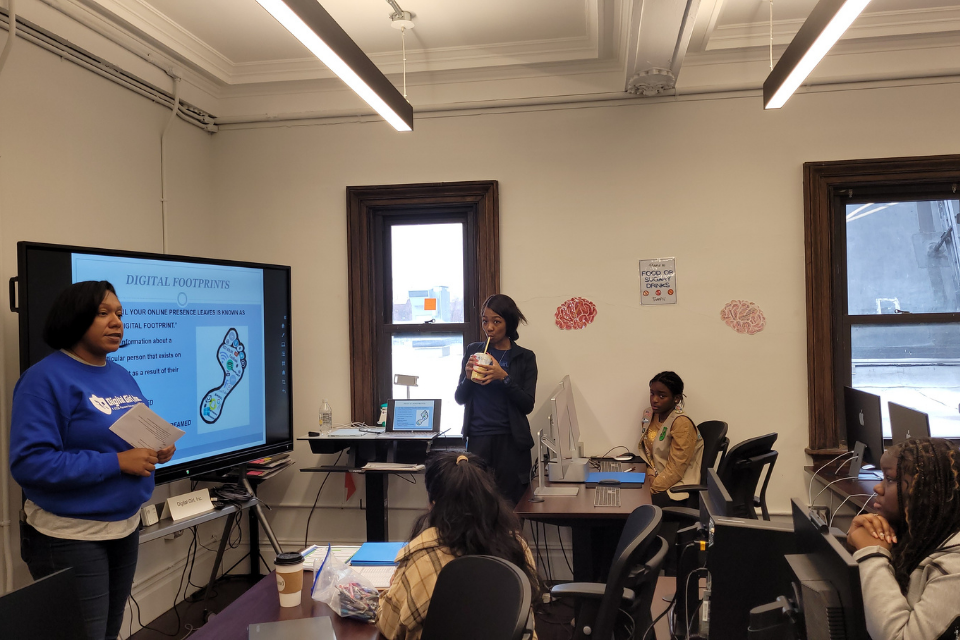As the founder of a nonprofit dedicated to promoting STEM education and digital literacy, I have helped thousands of students from diverse communities overcome digital inequity. Through our programs at Digital Girl, Inc., students develop valuable technical skills, boosting their confidence and closing knowledge gaps. Many of our Brooklyn alumnae have gone on to achieve great success, like Jadah Stone, now an IT Systems Engineer with SAKS Technologies, and Amina Stone-Taylor, who recently graduated from Columbia Law School with a J.D. in Tech Law. The work at Digital Girl is critical to ensure that Brooklyn students are well-prepared to succeed in their personal and academic endeavors.
Far too many students will be returning to classrooms next month having regressed academically due to the “summer slide” — a phenomenon where students lose a significant amount of the knowledge gained during the school year over the summer break. This academic backslide adversely impacts the math skills of up to 78% of students.
For fifth graders, this learning loss sets students back by up to three years. The impact is even more severe for students from low-income families and communities of color, who frequently lack access to summer enrichment programs — which have also become rarer and less-resourced since the pandemic.
Digital inequity only compounds this strain on children’s education. New York City Council data show up to 13% of public school students lack internet access at home; the same is true for over a third of households headed by Black or Hispanic New Yorkers.
Brooklyn’s students need greater access to both digital connectivity and high-quality programming all year long — and in the summer, especially. We must stem the summer slide and resolve its many consequences, from decreased college admissions applications to adverse effects on teens’ mental health.
These challenges affect students every day. Many of them return to school each September with gaps in their knowledge, lower confidence and a sense they’ve been left behind. As a result, girls and minority students, especially, are significantly underrepresented in STEM fields.
This is why DGI partnered with LinkNYC, the world’s largest free public Wi-Fi network, and the NYC Office of Technology & Innovation to establish the Brooklyn Gigabit Center in Crown Heights. Together, we provide free high-speed Wi-Fi — powered by LinkNYC — plus access to tablets and laptops, digital literacy workshops, and various STEM-focused programs that have served hundreds of students from our diverse communities.
The support of LinkNYC and OTI has effectively extended DGI’s reach, deepened our impact and furthered our mission to make Brooklyn a more equitable borough.
This summer, all of us at the Brooklyn Gigabit Center stepped up to provide even more opportunities for students from underserved communities to develop valuable technical skills through our new LinkNYC Leadership Academy. Young people aged 14-24 learned through real-world projects like coding, app development and robotics, and benefiting from the mentorship of industry professionals. DGI’s partnership with LinkNYC and OTI makes it possible to provide these programs at no cost to participants or their families. In addition to serving youth, the Brooklyn Gigabit Center also provides resources and digital literacy training for thousands of older adults, helping them navigate the digital world with confidence and ease.
The demand for our programs is high, and our capacity to serve even more students is constricted by funding, equipment and resources. To expand our work, we need more investment from stakeholders who believe in the importance of tech education and digital equity.
Coalitions like the one between DGI, LinkNYC and OTI have the power to close the summer learning gap as well as the digital divide in our city. The Brooklyn Gigabit Center’s model proves that real positive change is within our reach — we can make a genuine difference when dedicated organizations, partners and communities work together to create brighter opportunities for the next generation.
Michelle Gall is the founder and executive director of Digital Girl, Inc.




